VIPsight - 2nd Edition 2023
COMPANIES
Allianz SE: Ignoring a Technical Dilemma
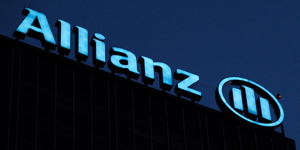 Since BaFin has taken its tasks seriously, even supposedly top names are no longer immune to criticism. The restrained communication about a current event shows the force with which this realization hit Allianz.
Since BaFin has taken its tasks seriously, even supposedly top names are no longer immune to criticism. The restrained communication about a current event shows the force with which this realization hit Allianz.
The problems are not even new and have been reported several times. What appears to be new, however, is that BaFin has evidently lost interest in troubleshooting and is now demanding solutions instead. Allianz will probably not get any further with excuses and needs to act. According to an article in the Handelsblatt, the main focus is on greater integration of the IT units within the parent company. The reinsurance business is particularly affected.
The measure is intended to contribute to reducing risks and increasing efficiency and is therefore welcome from a shareholder`s point of view. On the other hand, the continuous stream of negative news of this kind is unpleasant. Maybe Allianz could hire someone with the right communication skills who can give investors an overview of the problem areas in the IT units, the nature of the risks, as well as the costs and procedures for solving the problems. Combined with future proactive communication, this would be a step that would also benefit the group´s reputation. In times of volatile markets, this is a good investment.
BAUER AG: A Company goes dark
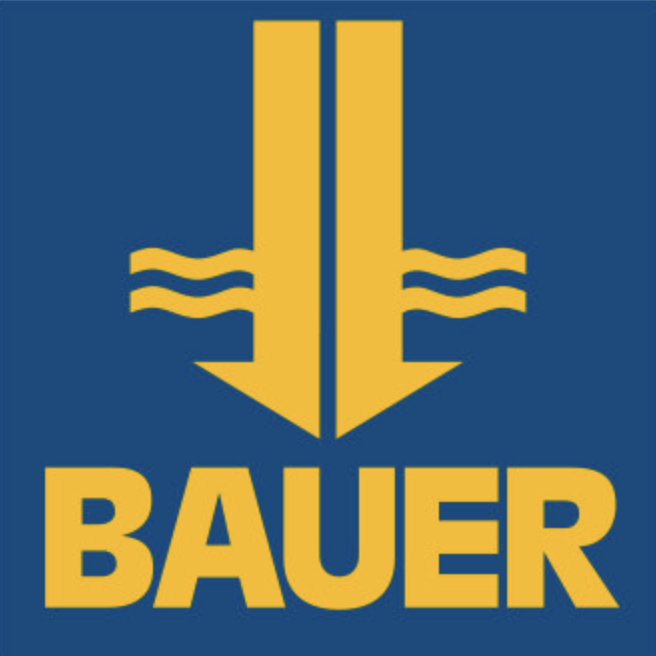 The balance of power has shifted at BAUER AG. The new positioning also affects the free shareholders. For example, the Executive Board of BAUER has decided to support the delisting of the shares from the Regulated Market of the Frankfurt Stock Exchange as sought by SD Thesaurus GmbH and the Supervisory Board of the company.
The balance of power has shifted at BAUER AG. The new positioning also affects the free shareholders. For example, the Executive Board of BAUER has decided to support the delisting of the shares from the Regulated Market of the Frankfurt Stock Exchange as sought by SD Thesaurus GmbH and the Supervisory Board of the company.
BAUER AG and SD Thesaurus GmbH plan to conclude a delisting agreement, and SD Thesaurus GmbH will structure a delisting offer to the shareholders following section 39 of the Stock Exchange Act. BAUER AG is committed to applying for the revocation of the admission of the company´s shares to trading on the Regulated Market of the Frankfurt Stock Exchange during the acceptance period of the Delisting Acquisition Offer so that delisting should become effective shortly after completion of the offer. The company added that it will not apply for the inclusion of its shares in the Open Market of a stock exchange.
According to BAUER AG, the economic benefit of including the shares in the Regulated Market no longer justified the associated expense. The regulatory framework is considered to be increasingly restricting the company and causing significant costs to comply with and implement the numerous legal requirements. The withdrawal, therefore, is considered to result in a reduction in the company´s future administrative and cost expenditure.
These arguments have been heard many times before. What is astonishing is that it is said primarily when a new major shareholder appeared. And to this day no one has been able to explain why it should apply to the inclusion of the shares in the Open Marke
Brenntag SE: Public Shareholder Correspondence
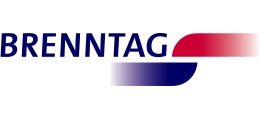 Critical shareholder voices are part of everyday management at Brenntag. This does not necessarily mean that the shareholders are correct in their criticism. But at least one can say that this management has learned how to deal with it. Brenntag could also use this experience when dealing with a recent letter from PrimeStone Capital LLP.
Critical shareholder voices are part of everyday management at Brenntag. This does not necessarily mean that the shareholders are correct in their criticism. But at least one can say that this management has learned how to deal with it. Brenntag could also use this experience when dealing with a recent letter from PrimeStone Capital LLP.
It looks like the investor and Brenntag have been in an intensive exchange of views for a long time, with a focus on corporate governance topics. In this context, the disposal of Brenntag Specialties is just one step requested. At the same time, the investor requests
- a stronger focus by the Supervisory Board on management´s performance and cost efficiency,
- the end of equivocal, misleading, or erroneous communications, and
- a sense of urgency in doing all of the above.
What at first glance looks like an action plan is at the same time a condemnation of the company´s previous approach and the quality of management decisions. If Brenntag wants to keep its strategic and operational course and deliver a compelling answer, strategic babble, plans, and intentions will not suffice. For a credible reaction, this management must also critically analyze and evaluate its own decisions to date.
Buhlmann's Corner
brave new world
 ThyssenKrupp was not really an opponent; Cevian got into the ring - and soon realised that manual mistakes made the commitment turn blood red and stay that way. Siemens was beyond the reach of activists, as spin-offs came faster than concretely "demanded". Daimler's march back to Mercedes was completely in the interests of the managers. And the honourable as well as arrogant Bayer people (who are they? What are their names?) were just the logical target of all activists; they came, they went, they came back and even Thomas Henrik Shrager, Managing Director of Tweedy Browne demanded what is still demanded today: divide and spill. Who doesn't remember Shrager's appearance at THAT Bayer AGM where political (bee) activists climbed the balustrade behind the supervisory board....
ThyssenKrupp was not really an opponent; Cevian got into the ring - and soon realised that manual mistakes made the commitment turn blood red and stay that way. Siemens was beyond the reach of activists, as spin-offs came faster than concretely "demanded". Daimler's march back to Mercedes was completely in the interests of the managers. And the honourable as well as arrogant Bayer people (who are they? What are their names?) were just the logical target of all activists; they came, they went, they came back and even Thomas Henrik Shrager, Managing Director of Tweedy Browne demanded what is still demanded today: divide and spill. Who doesn't remember Shrager's appearance at THAT Bayer AGM where political (bee) activists climbed the balustrade behind the supervisory board....
Such acts are now virtually relegated to the living room of the critical activist - coupled with a censorship apparatus that would make any Chinese person's blood run cold. Shareholders are supposed to find 60 months of goodwill for this consolidation of managerial power? Of course there was criticism, also from the two voting advisors - the larger of which is owned by Deutsche Börse. The senior issuer advisors quickly agreed on a common language: not 5 but 2 years virtual and case-by-case review. So presumably all currently active board members can still survive until retirement with peace of mind. INFINEON, which was initially badly advised and only wanted what ¾ of the DAXes wanted, was given a lapel to sign: decide on 5 years and voluntarily limit it to 2 years - at any time a board can also become smarter tomorrow and ...
Siemens also purged itself of 5 to 2 years, to push through the 5 years par ordre du mufti for the 75% shareholding in Healthineers. Why have a Q&A at all? Let the AGM representatives get the classic right to "submit" 6 adjectives, from which the chat robot with GPT then compiles 3 questions, 2 comments and 1 photo through Microsoft BING. Why transport Ingo Speich, Hendrik Schmidt & Co from A to B? It's much easier to use artificial intelligence - which also solves the (coincidental?) problem of the coincidence of dates - by coincidence the AGMs of BASF and BAYER have been taking place on the same date for the last decade. Embarrassing mix-ups such as the Wirecard AGM 2019 are solved by the adaptive robots at the same time: in the (audited, now cancelled) financial statements for 2018, provisions and reserves were mixed up. Such mishaps do not happen to the ChatBot, or if they do, then only once.
For VIP, I promise you one thing: to avoid the danger of using the same adjectives as UNION, I will have my contributions set to music. Why should only Elliott put a Singer, I can do that too. Sure: with good results in major and with ... - that's how we do it, Google and also Baidu have already announced the bard. And whoever still wants to go to Ingo's "hall" will have to organise chrysanthemum and frankfurter sausages in sufficient quantities themselves - the police will only come for Mercedes.
ACTIONS CORNER
Deutsche Börse AG: Sitting between the Chairs can be uncomfortable
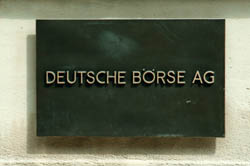 Clearstream Banking S.A., Luxembourg, a subsidiary of Deutsche Börse AG, informed that a US court awarded judgment to creditors of Iran who had brought a lawsuit seeking turnover of approximately 1.7 billion USD that are attributed to the Iranian central bank (Bank Markazi) and held in custody at Clearstream in Luxembourg in a client account. Clearstream is considering appealing the decision.
Clearstream Banking S.A., Luxembourg, a subsidiary of Deutsche Börse AG, informed that a US court awarded judgment to creditors of Iran who had brought a lawsuit seeking turnover of approximately 1.7 billion USD that are attributed to the Iranian central bank (Bank Markazi) and held in custody at Clearstream in Luxembourg in a client account. Clearstream is considering appealing the decision.
Since 2018, Bank Markazi – also as part of an action filed in Luxembourg against Clearstream – is asking for the restitution of considerable amounts of assets including the abovementioned amount of approximately 1.7 billion USD. This action is currently still being briefed in the first instance proceedings. After legal consultation, Clearstream believes the claims made against it in Luxembourg to be without merit.
Based on the legal assessment of these cases, the court decision does not cause any material change to the overall risk that would require Clearstream or Deutsche Börse AG to make provisions in this context.
Fine. Do we have a problem there, or don´t we? How to define this (non-?)risk, and could the same happen with Russian assets as a result of the sanctions?
Adler Group S.A.: Hanging on to Live
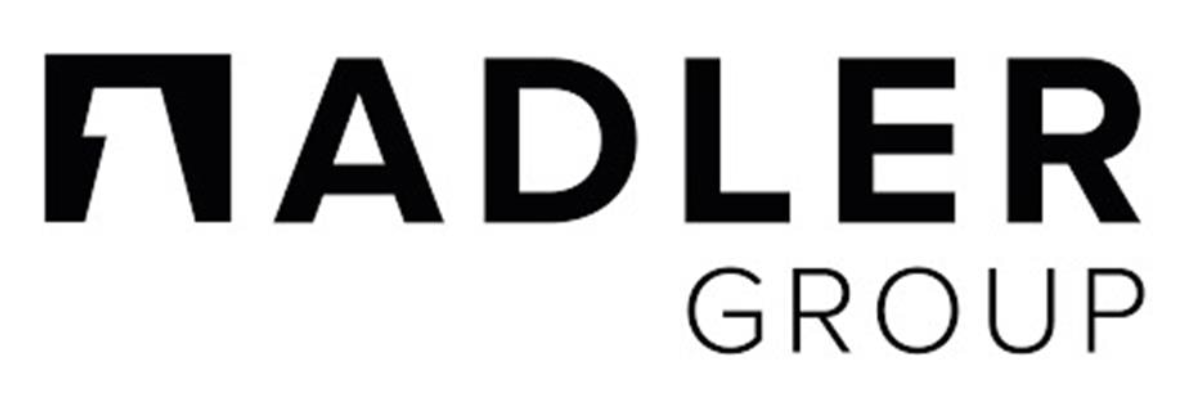 That much is certain now, Adler Group will keep us busy for quite a while. While many observers wrote off Adler some time ago, the ailing real estate group continues to be combative. This is also due to the High Court of Justice of England and Wales, which approved the current restructuring plan under Part 26A of the Companies Act 2006 of AGPS BondCo PLC, a 100% subsidiary of Adler Group S.A.
That much is certain now, Adler Group will keep us busy for quite a while. While many observers wrote off Adler some time ago, the ailing real estate group continues to be combative. This is also due to the High Court of Justice of England and Wales, which approved the current restructuring plan under Part 26A of the Companies Act 2006 of AGPS BondCo PLC, a 100% subsidiary of Adler Group S.A.
Several bondholders objected to the plan proposed by ADLER. In particular, the holders of the bond maturing later saw themselves disadvantaged by the plan. Economically, these fears are obvious. But they are just a part of a decision that must take into account all positions affected.
With the sanctioning of the plan, material requirements for the implementation of the amendments of the terms and conditions of the notes of AGPS BondCo PLC are being met and new money shall be provided by a group of bondholders to the Adler group of companies, subject to the fulfillment of further closing conditions.
SYNLAB AG: Just a Pit Stop at the Stock Exchange?
SYNLAB went public just two years ago. This short time is not enough to leave a lasting impression. And yet the stock market listing could soon be a thing of the past.
In March, funds advised by Cinven Limited submitted a legally non-binding expression of interest to acquire up to 100% of the company´s shares at an indicative offer price of 10.00 EUR per SYNLAB share. Cinven already holds approximately 43% of the company´s share capital. SYNLAB is now examining the expression of interest and its options for action. This expression of interest was not coordinated with the company and it is currently not foreseeable whether there will be a public acquisition offer on the part of CINVEN to all shareholders of SYNLAB.
As a reminder: around 20 EUR were paid for the share on its first day of trading. For an essentially successful company, this is an unusual share price performance. So who is to blame?
Capital News
TUI AG: Close, but just taken the Curve
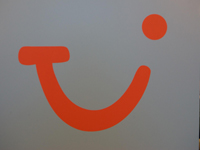 In mid-April, the TUI share came under a little pressure. This was due to an unexpected oversupply of shares.
In mid-April, the TUI share came under a little pressure. This was due to an unexpected oversupply of shares.
In March 2023, the company announced the launch of a capital increase with subscription rights. The gross proceeds of the issue of approx. 1.8 billion EUR shall be used for repayment of WSF state aid and a significant reduction of the KfW credit lines to strengthen its balance sheet.
The issue comprised 328,910,448 new shares. Shareholders could subscribe to the new shares at a ratio of 8 new shares for 3 existing shares at the issue price of 5.55 EUR per new share. All shareholders? No, there was one noteworthy exception. Alexey A. Mordashov held 30.91% of the shares outstanding before the capital increase. This indirect holding via Uniform Limited and Servergroup LLC is subject to a loss of rights as a result of sanctions and under German securities law.
So Mr. Mordashov and persons or entities connected to him could therefore not participate in the rights issue and did not receive subscription rights. Hence, the rights issue excluded new shares attributable to Mr. Mordashov and persons or entities connected to him, and it was not secured through an underwriting commitment by a syndicate of banks.
In the end, not all plans worked out. But with a subscription quote of 90.884%, everyone involved in Hanover should have breathed a sigh of relief. What is more, a syndicate of banks successfully procured subscribers for all the 29.982.311 new shares not subscribed for in the subscription offer.
Hello TUI, welcome back as a normal capital-market-ready company!
LEONI AG: Gone with the Wind
 When companies are overwhelmed by an almost unbelievable number of extraordinary problems, this can also be due to inadequate corporate governance or corporate culture. After all, this has already brought down former giants such as AEG, and since then there has been a steady stream of other examples, including more recently LEONI AG.
When companies are overwhelmed by an almost unbelievable number of extraordinary problems, this can also be due to inadequate corporate governance or corporate culture. After all, this has already brought down former giants such as AEG, and since then there has been a steady stream of other examples, including more recently LEONI AG.
LEONIE had its fair share of corporate problems for executives and advisors to tinker with. Successful problem-solving looks different. However, this also means that investors could recognize the risks involved. The full extent of the disaster only became clear towards the end. After the failure of a half-baked spin-off plan for a business unit, the existence of the company was in jeopardy and an emergency solution had to be found. The end of the gambling period had also to be reflected on the balance sheet. In April the company announced that the ongoing preparation of the 2022 annual financial statements indicated that, due to significant impairments, a loss that consumes the capital stock will have definitively occurred for fiscal 2022. At the time, the company expected impairments in the high three-digit million EUR range.
The Executive Board of LEONIE will therefore convene an extraordinary shareholders´ meeting soon. Shareholders can already mark June 2nd in their diary when this meeting shall be held. This meeting has a special meaning because it will probably be the last one as a public company.
Due to the ongoing extraordinary challenges, LEONI entered into negotiations with its financing parties and Leoni´s main shareholder, Dipl.-Ing. Stefan Pierer, on a financial restructuring concept. The measures aim at a substantial reduction in the company´s debt and the provision of fresh liquidity, to be implemented based on the German Corporate Stabilization and Restructuring Act (Unternehmensstabilisierungs- und restrukturierungsgesetz).
According to the plan, a company indirectly held by Mr. Pierer would, after a simplified capital reduction of LEONI AG to 0 EUR, contribute 150 million EUR by way of a cash capital increase with a subsequent contribution in kind in return for the issuance of new shares in Leoni AG. In addition, this company is to take over financial claims against LEONI for 708 million EUR from its financing parties in return for a recovery instrument corresponding to an economic interest of 45%. These claims will be contributed to LEONI AG in the course of the capital increase by way of a contribution in kind. In the course of this capital increase, to which only the company indirectly held by Mr. Pierer is to be admitted, this company will become the new sole shareholder of LEONI AG.
The news caught many investors off guard. What is more, Leoni did announce the beginning of the implementation of this plan shortly afterward. So what is clear as of today is that the shareholder´s meeting on June 2nd is a zombie event. Yes, it´ll be an occasion to express frustration over what happened, but it´ll be meaningless for the company's future. Instead, the story sounds like a paradise for lawyers.
VARTA AG: Back to the Start
 Experienced management does not even need much time to put a listed company on course for restructuring. After a failure in 2016, VARTA managed to go public in 2017. The share received strong advance praise and initially recorded a pleasing share price development. However, the joy didn´t last long, because soon there were the first signs of stress. This did not stop the share price from soaring to over 160 EUR per share until the rose-colored glasses of investors were cleaned with bad news. The information on the restructuring concept published in March almost reads like a list of deficiencies for the management.
Experienced management does not even need much time to put a listed company on course for restructuring. After a failure in 2016, VARTA managed to go public in 2017. The share received strong advance praise and initially recorded a pleasing share price development. However, the joy didn´t last long, because soon there were the first signs of stress. This did not stop the share price from soaring to over 160 EUR per share until the rose-colored glasses of investors were cleaned with bad news. The information on the restructuring concept published in March almost reads like a list of deficiencies for the management.
VARTA reached an agreement with the financing banks and the majority shareholder on far-reaching restructuring measures. The short-term financing needs of the company are covered by a capital increase with gross proceeds of approximately 51 million EUR for VARTA. This amount is deemed to be sufficient to secure the further development of the company and enable its restructuring. The agreement also provides for an extension of the financing of VARTA until the end of December 2026 and changes the loan conditions. The restructuring includes an adjustment of production and structural costs, as well as investments in growth areas such as energy transition and e-mobility. Supplemented by measures to strengthen operations, this will create prerequisites for stabilizing the company. The measures also include cost savings in the personnel area.
At first glance, this sounds good. But wouldn´t it also make sense to strengthen controlling and corporate communication so that future problems can be identified earlier?
In any case, the restructuring did not dampen the optimism of shareholders. The share price is currently still almost at the level of the issue price at the IPO.
Pfeiffer Vacuum Technology AG: Major Shareholder Strengthens its Position
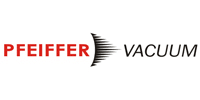 Pfeiffer Vacuum Technology AG concluded a domination and profit and loss transfer agreement between the company as the controlled entity and Pangea GmbH as the controlling company, with the consent of the Supervisory Board of Pfeiffer. Pangea is a wholly-owned subsidiary of Busch SE, which currently owns about 62.7% of the shares in Pfeiffer, while Busch SE owns an additional 0.96% of the shares in Pfeiffer.
Pfeiffer Vacuum Technology AG concluded a domination and profit and loss transfer agreement between the company as the controlled entity and Pangea GmbH as the controlling company, with the consent of the Supervisory Board of Pfeiffer. Pangea is a wholly-owned subsidiary of Busch SE, which currently owns about 62.7% of the shares in Pfeiffer, while Busch SE owns an additional 0.96% of the shares in Pfeiffer.
The domination and profit and loss transfer agreement requires the consent of the AGM of Pfeiffer, which is planned for May 2, 2023, and the consent of the shareholders of Pangea. In the agreement, Pangea is offering to acquire the shares of the outside Pfeiffer shareholders in return for a cash compensation of 133.07 EUR per share. The cash compensation corresponds to the volume-weighted average stock market price of 133.07 per share calculated by BaFin in the relevant three-month period up to and including November 5, 2022. In addition, the domination and profit and loss agreement provides for an annual recurring compensation payment for the outsid.















